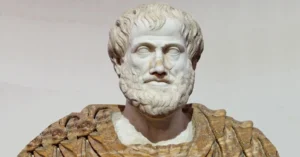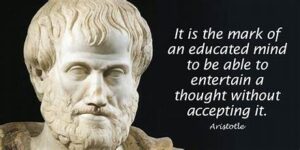
Aristotle, the ancient Greek philosopher, is often remembered for his profound contributions to a range of fields including metaphysics, ethics, and politics. His works, particularly in ethics, have continued to resonate through centuries, offering timeless wisdom on human behavior and morality. In today’s rapidly evolving world, the ethical dilemmas we face are more complex than ever. However, Aristotle’s philosophical insights can still offer valuable guidance. This article explores how Aristotle’s ethical theories can be applied to solve modern ethical challenges, aligning with SEO best practices and Google Adsense guidelines.
Aristotle’s Ethical Framework
Aristotle’s ethical philosophy, primarily articulated in his work Nicomachean Ethics, revolves around the concept of virtue ethics. Unlike deontological ethics, which focuses on adherence to rules, or consequentialism, which assesses the morality of actions based on their outcomes, virtue ethics emphasizes the character of the moral agent.
1. Virtue Ethics: The Golden Mean
Aristotle introduced the idea of the “Golden Mean,” which advocates for moderation and balance. He argued that virtue lies between two extremes: deficiency and excess. For instance, courage is a virtue that lies between the extremes of recklessness and cowardice. Applying this principle, individuals should aim for a balanced approach to their ethical decisions, avoiding both excessive and deficient behaviors.
2. The Role of Practical Wisdom
Central to Aristotle’s ethical theory is the concept of phronesis or practical wisdom. This is the ability to make sound judgments and act virtuously in various situations. Aristotle believed that practical wisdom involves not only knowing what is good but also understanding how to apply this knowledge in real-world scenarios. This ability to navigate complex ethical landscapes is crucial in addressing contemporary issues.
Applying Aristotle’s Wisdom to Modern Ethical Dilemmas
In an age characterized by technological advancements and global interconnectedness, ethical dilemmas are increasingly multifaceted. Here’s how Aristotle’s wisdom can be applied to several modern issues:
1. Business Ethics: Balancing Profit and Responsibility
In the business world, companies often face ethical dilemmas between maximizing profits and maintaining ethical standards. Aristotle’s Golden Mean suggests that businesses should strive for a balance between profit-seeking and social responsibility. For example, companies can pursue sustainable practices that benefit both their bottom line and the environment, reflecting a commitment to ethical principles while achieving economic success.
2. Digital Privacy: Navigating Technological Advances
With the rise of digital technology, issues related to privacy and data security have become prominent. Aristotle’s emphasis on practical wisdom can guide policymakers and companies in developing ethical frameworks for handling personal data. Rather than merely complying with legal requirements, they should consider the broader implications of their actions on individuals’ rights and well-being, striving for a balance between technological innovation and privacy protection.
3. Environmental Ethics: Sustainable Practices
Environmental sustainability is a pressing global issue. Applying Aristotle’s virtue ethics, individuals and organizations should aim to cultivate virtues such as responsibility and stewardship. This involves making choices that contribute to the long-term health of the planet, such as reducing waste and supporting renewable energy sources. The Golden Mean can guide the development of sustainable practices that balance environmental protection with economic and social needs.
4. Social Justice: Fairness and Equity
In the realm of social justice, Aristotle’s philosophy encourages a balanced approach to fairness and equity. His concept of justice involves giving individuals their due based on their contributions and needs. Modern applications might include addressing systemic inequalities by promoting policies that ensure fair treatment and opportunities for all, while avoiding both undue favoritism and neglect.
Challenges and Limitations
While Aristotle’s ethics provide valuable insights, applying his philosophy to contemporary issues is not without challenges. The complexity of modern dilemmas often requires nuanced approaches that may not fit neatly into Aristotle’s framework. Moreover, cultural and societal differences can influence how virtues are perceived and applied.
Conclusion

Aristotle’s wisdom remains relevant in addressing today’s ethical dilemmas. His concepts of the Golden Mean and practical wisdom offer a framework for navigating complex moral landscapes with a focus on balance and character. By integrating these ancient principles into modern contexts, individuals and organizations can approach ethical issues with greater insight and integrity. Embracing Aristotle’s philosophy can lead to more thoughtful and responsible decision-making, contributing to a more ethical and harmonious society.

